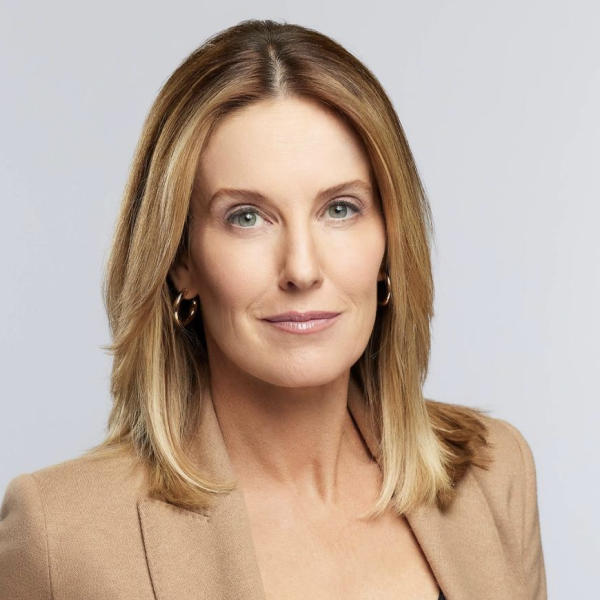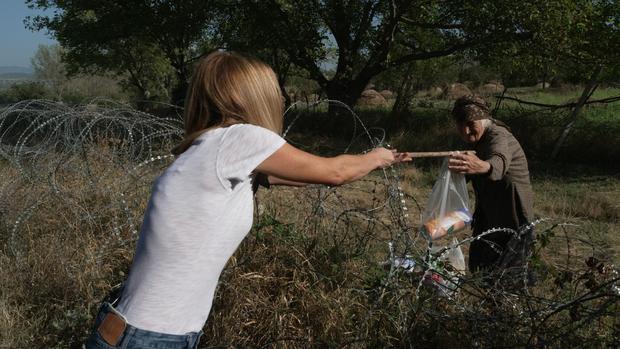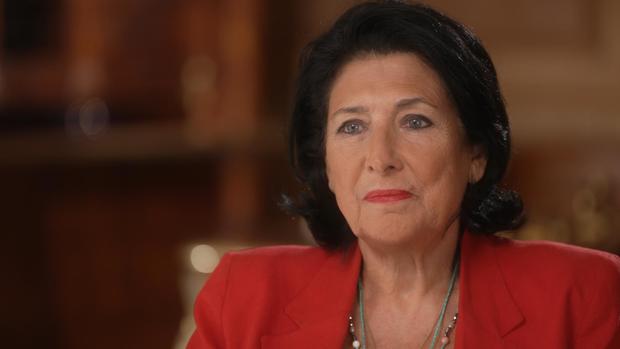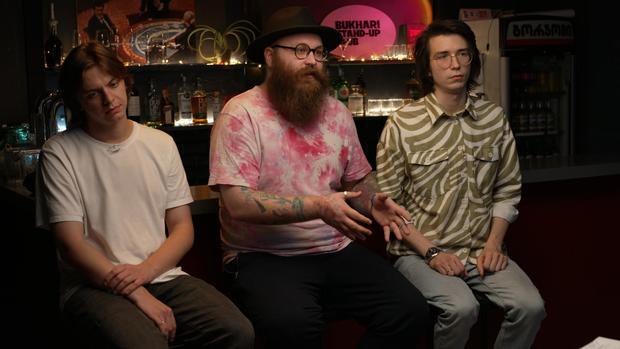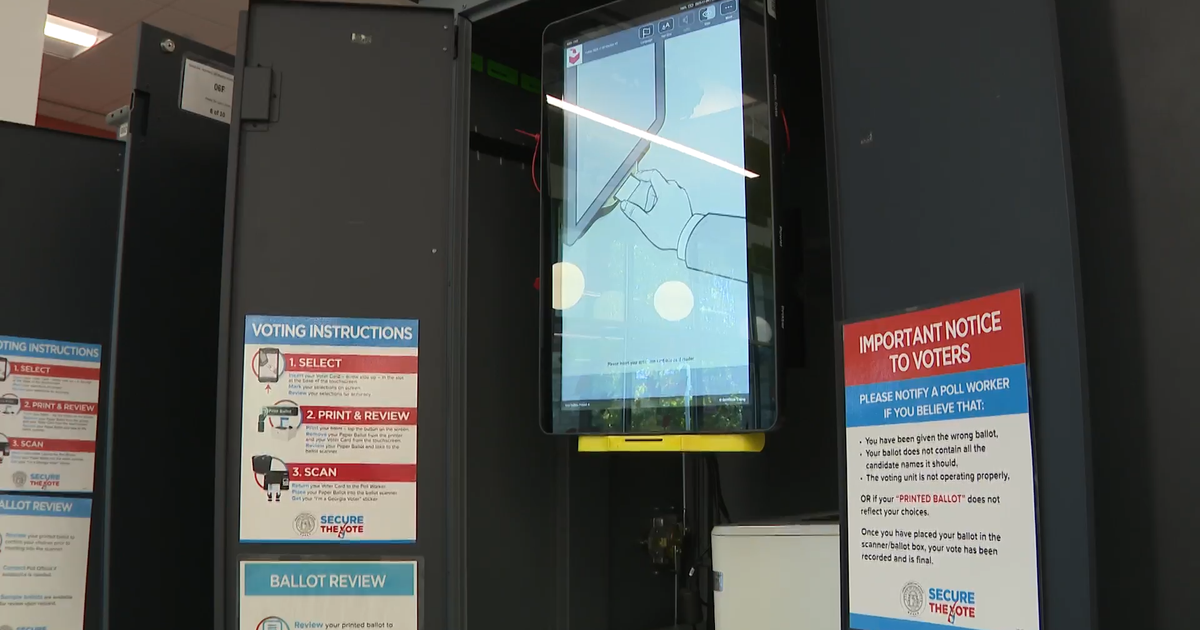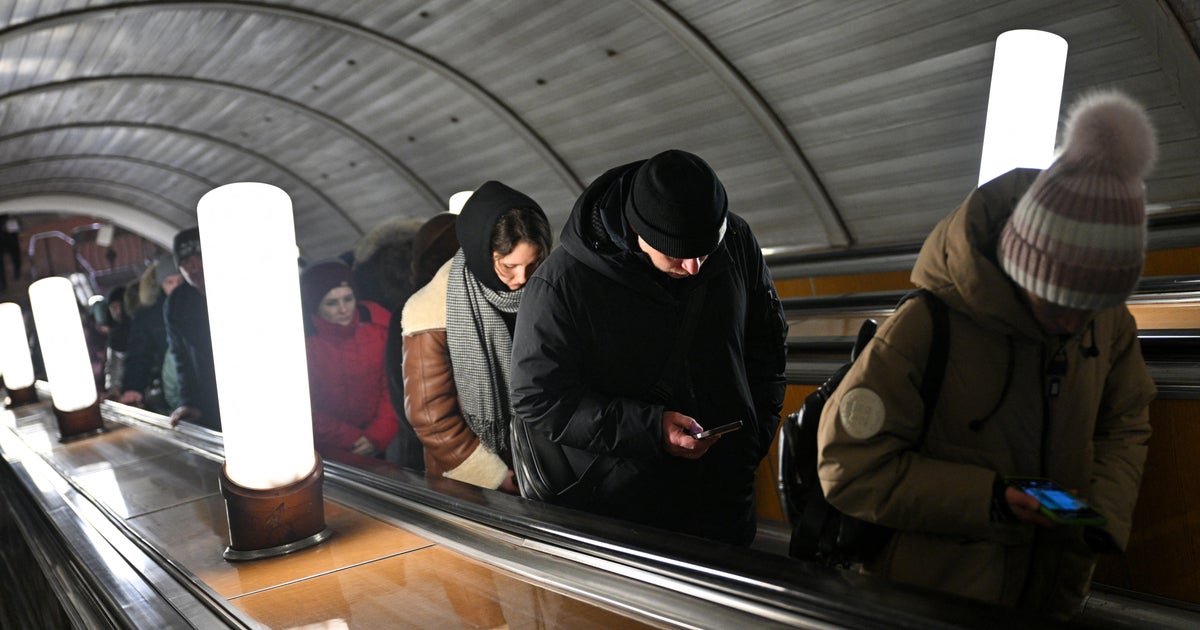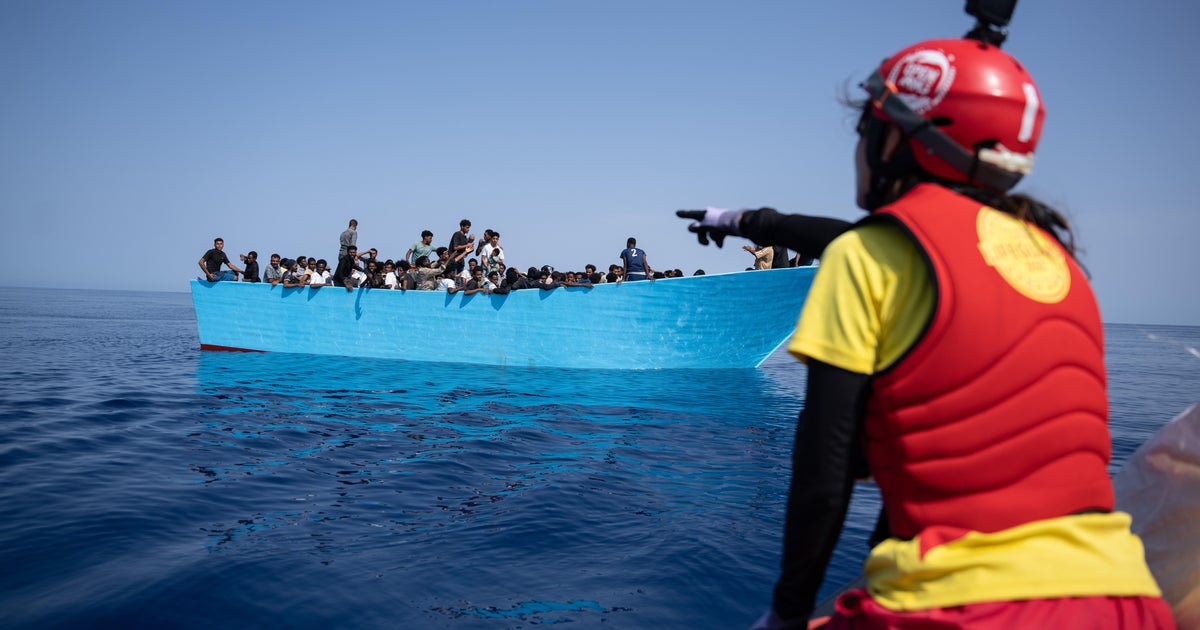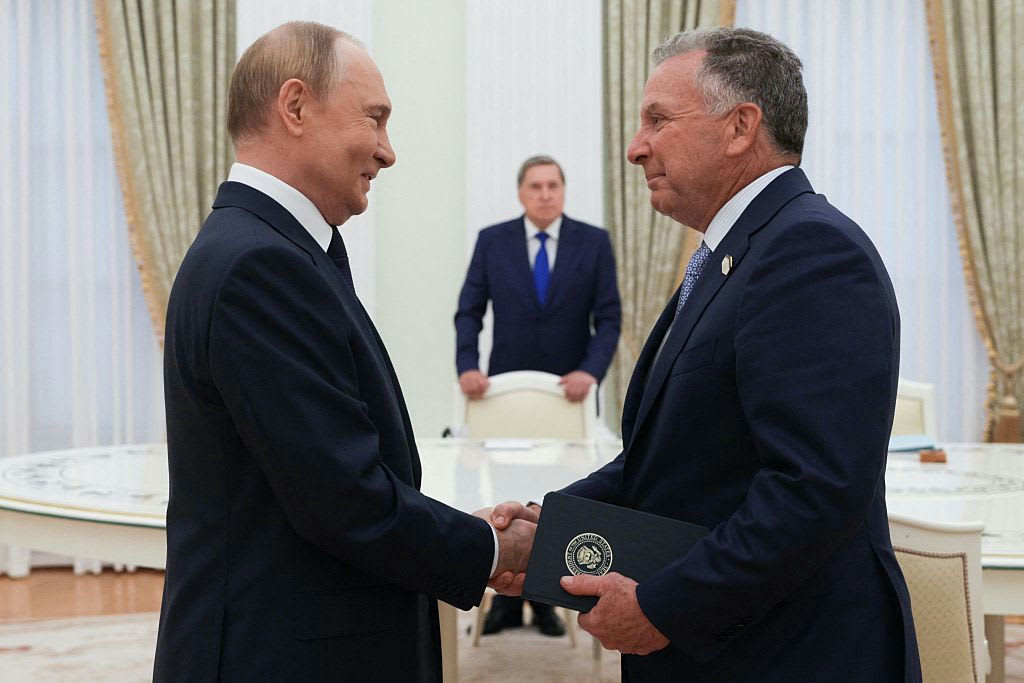Georgians fear influx of migrants from Russia after Ukraine invasion
Fifteen years after Russia invaded neighboring Georgia, many in the country fear President Vladimir Putin has launched a new "quiet invasion" focused on disinformation campaigns and anti-Western propaganda in an attempt to extend Russia's reach.
Russia seized 20% of Georgia's territory during a five-day battle in 2008, upending the lives of many, including 87-year-old Valya Vanishvili. Though afraid of Russia, the defiant grandmother of four has refused to leave her home in Khurvaleti, a village inside South Ossetia, a breakaway province of Georgia now occupied by Russia. Vanishvili lives in an area choked off by barbed wire and patrolled by Russian soldiers, leaving her to rely on outsiders to get food and medicine.
"What if they take me and detain me? Nobody can help me," Vanishvili said in Georgian. "I am alone. When it's only [a] couple of them, I can always answer them and fight back. But when it's a lot of them, there's nothing I can do."
Georgia, a country of almost 4 million, has tried to escape the Kremlin's grip since 2008, but the war in Ukraine is complicating that.
Georgia's strategic importance to Russia
Russia and Georgia share a 556-mile border. United Nations data shows that since the war in Ukraine began, everything from cars to chemicals have rolled into Russia through Georgia. There are long lines of cargo trucks at the border. The U.N. estimates billions of dollars of goods have made their way through Georgia and into Russia since 2022, providing a lifeline to the Russian regime, which has been dealing with Western sanctions.
The executive power to control Georgias' borders is squarely in the hands of Prime Minister Irakli Garibashvil.
Garibashvili, says that he supports his country's bid to join the European Union and pull away from Moscow, but his actions –and inactions– tell a different story.
For example, he agreed to resume direct flights between Tbilisi, Georgia's capital, and Moscow even though Russian troops continue to occupy a fifth of the country and a war rages on in Ukraine.
He has also failed to adopt strong sanctions against Russia and many in Georgia say Garibashvili is in the pocket of Bidzina Ivanshivilli, a billionaire Georgian oligarch who made his money in Russia. Last summer, European lawmakers called for sanctions against the oligarch for his "links to the kremlin," a connection that could undermine Georgia's EU bid
How the war in Ukraine impacts life in Georgia
While goods have moved through Georgia into Russia, Russian nationals have been moving the other way. Many have gone to Georgia after criticizing the war or speaking out against Putin. Others have come fleeing Russia's draft.
Some Georgians worry Putin loyalists could be entering the country, too, gathering intelligence or laying the groundwork for Russia's next move.
Putin said he invaded Ukraine to, among other things, protect Russians living there. Georgian President Salome Zourabichvili fears Putin could launch a similar campaign in Georgia, which is now home to around 100,000 Russians.
The influx of Russians into Georgia has raised tensions and stirred suspicions.
"They're behaving and believing that they are very much at home. So there is a fine line. And that line has to be kept so that we do not have incidents in the future that would allow Russia to use their favorite doctrine of protecting Russian-speaking citizens," Zourabichvili said. "And everybody has to know: where is the line between being a foreigner that is accepted in a country and being an invader that is not accepted, even if it's a soft invader."
Some say the presence of so many Russians has already changed Georgia. Russians have registered 21,000 businesses in Georgia over the last 18 months, according to public records. They've launched five new Russian-only schools, none of which are licensed by Georgia's Department of Education.
Russians have driven rents up nearly 130%, according to TBC Capital, a financial management firm. Prices for everything from food to cars have also gone up, according to the National Statistics Office of Georgia. More than 100,000 Georgians have left the country, according to the Georgian Ministry of Internal Affairs. Many of them left Georgia because they can't afford to live there anymore.
The mass migration of Russians to Georgia has spurred anti-Russian sentiment, even though some of those who fled Russia came because they feared being drafted or imprisoned for speaking out against Putin.
Emmanuil Lisnif, a Russian now living in Georgia, said he went to jail three times in Russia's St. Petersburg for speaking out against the war in Ukraine. He works at a Russian comedy club in Tbilisi alongside George Smorgulenko and Pavel Bakhadov, who also fled Russia for Georgia.
Each day, Bakhadov sees graffiti outside his window in Tbilisi that says "Russians go home." Anti-Russian graffiti blankets the city, along with statements of support for Ukraine.
Georgia on a precipice
Walls in Georgia are also covered with the flags of Georgia, the European Union, the U.S. and NATO. More than 80% of the Georgian public backs entry into the EU, as does President Zourabichvili, but her position has become increasingly ceremonial as the country moves toward a parliamentary government.
The EU has laid out a list of requirements for Georgia to become part of the EU. The conditions include tackling corruption and lessening the economic and political influence of domestic oligarchs. A decision is expected by the end of the year.
After Zourabichvili went to Europe to try and pave the way for that EU bid, Prime Minister Garibashvili accused her of violating the country's constitution. He banned her from traveling to Europe using public funds and tried, but failed, to impeach her.
Zourabichvili has continued to fly to Europe on her own dime to meet with leaders.
"It will be a big victory for Russia" if Georgia's bid to join the European Union is denied, Zourabichvili said.
Zourabichvili believes Russia is already "testing the ground" in Georgia. Russia has firm military positions inside Georgia's borders and an estimated 8,000 troops manning them. Zourabichvili said that's combined with softer tactics of anti-Western propaganda and political interference.
Thousands of young Georgians, including Ana Tavadze, are part of the movement working toward Georgia's entry into the European Union. Tavadze said many in the government are pro-Russian and uncaring about what most of Georgia wants.
"If Russia wins, it means loss of freedom, loss of everything that we fought for in the past 30 years basically," Tavadze said. "It's a fight for values, for where you want to stand in this big fight for democracy."
